At the just concluded @brindocorp ISDEV2017 Hackathon which had the theme titled Artificial intelligence: Building smart apps for the future, We invited a world class Google developer Mr. Femi Taiwo to help us shed the light in creating smart applications that foster the growth of technology with its environs.
At the event Mr. Femi was able to present key areas in which developers can consider when deciding to build for the future, he also outlined the need for smart applications in today's world. You can visit this link to have the slides https://speakerdeck.com/dftaiwo/building-smart-apps-for-the-future
The talk is sectioned into six parts, first, we need to understand the meaning of smart applications in preamble let's go through this areas:
What is a “Smart App”?
❖ Examples Around Us
❖ Why build Smart Apps
❖ Getting Started
❖ Conversational Experiences
❖ Resources & Tools
- What is a “Smart App”?: Smart Apps are innovative systems that gather tremendous amounts of data from sensors and other sources, using machine learning algorithms and predictive analytics to make this information actionable for users and to improve experiences.
Now, What is a “Regular App”?: An application is a software program that's designed to perform a specific function directly for the user or, in some cases, for another application program. Or we could say “Regular Apps” manage informations provided by it's users.
End of Story
And why are smart apps different from a regular app? it is simply because smart apps manage informations on it's own, or with less user inputs, learn from information, learn from interaction with their user and with the physical world.
And why is it "Smart"?: They provide actionable Information, gather tremendous amount of data, crunch with machine Learning, mix with predictive analysis.
Smart apps are intelligent unlike regular apps that depends on user input, they are contextual, pro-active, Living & Breathing.
Now let's break it down. Why can we say "Smart Apps" are intelligent? it is because they make recommendations and predictions by combining Analytics, Machine Learning & Artificial Intelligence.
And why are they contextual? They Relate based on any data, including personal, Sensor, location data and events.
And why are they "Pro-Active"? They provide the user with smart recommendations of what to do and when, without being asked, anticipate user behaviors and deliver actionable and individualized outcomes.
How possible can they be "Living and Breathing"? It is because, they continually learn from interactions to become even more relevant and valuable.
Examples of Smart Apps
❖ Google Maps
❖ Google Photos
❖ Facebook News Feed
❖ Netflix
❖ Uber
❖ Google, Microsoft and Apple Personal Assistants
The "BIG" question: "Why build a Smart App? Or Why should i make my App smart?"
The answer to the questions above is users get a more compelling, more prescriptive user experience, get support & enable Key User/Business Decisions, it also stated by report that IoT Market will Reach a peak vale of $267B By 2020.
A vivid example - The Bank: Smart apps can be used for AML Pattern Detection, Fraud Detection and Customer recommendations.
Another sited is example is the field of e-commerce, smart apps can be used for predicting Customer behaviour and product recommendations.
Healthcare
It can be used for mining medical records for better healthcare, detecting patterns of diseases and personalized treatment Plans.
Let's Get started in Building smart apps for the future.
First start with 3 Key questions
- What is the experience you want to deliver?
- What kind of data/dataset will provide the information that will drive it?
- How will you deliver the information/response?
Get involved in conversational experiences and what are they?: They give users new ways to interact with your product, service or app by building engaging voice and text-based conversational apps.
Chatbots
They use machine learning to understand what users are saying.
Extracting: Context, Entities and Intent.
Conversation Experiences: Examples
❖ Google Assistant
❖ Kudi.ai
❖ EatDrinkLagos
❖ Lara.ng
❖ Amarya
Here are their screenshots respectively, You can view them with clicking on their links.
Google Assistant
Kudi.Ai
EatDrinkLagos
Lara.NG
And finally the Winning AI at the just concluded @brindocorp #ISDEV2017 Hackathon "Amarya"
Tools for Building Conversational Experiences
❖ API.ai
❖ Wit.ai
❖ IBM Watson
❖ Bot Framework
❖ FlowXO
Free Resources & Tools
https://cloud.google.com/free/
Get - $300 credit in a 12-month free trial
- Always Free Quota
Cloud Natural Language API
Extract information about people, places, events and much more, mentioned from text.
https://cloud.google.com/natural-language/
TensorFlow
Open source software library for machine learning across a range of tasks.
https://www.tensorflow.org
Cloud Vision API
Extract information from images, classifies and detects individual objects and faces within images, and finds and reads printed words contained within images.
https://cloud.google.com/vision/
Cloud Machine Learning
Enables you to easily build machine learning models that work on any type of data, of any size
https://cloud.google.com/ml-engine/
Final Words
Every application that is being developed today has to be an intelligent app; this is not a recommendation but a necessity.
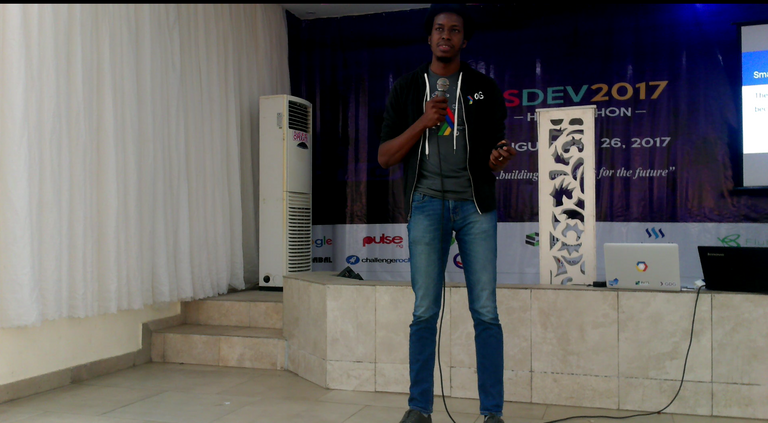
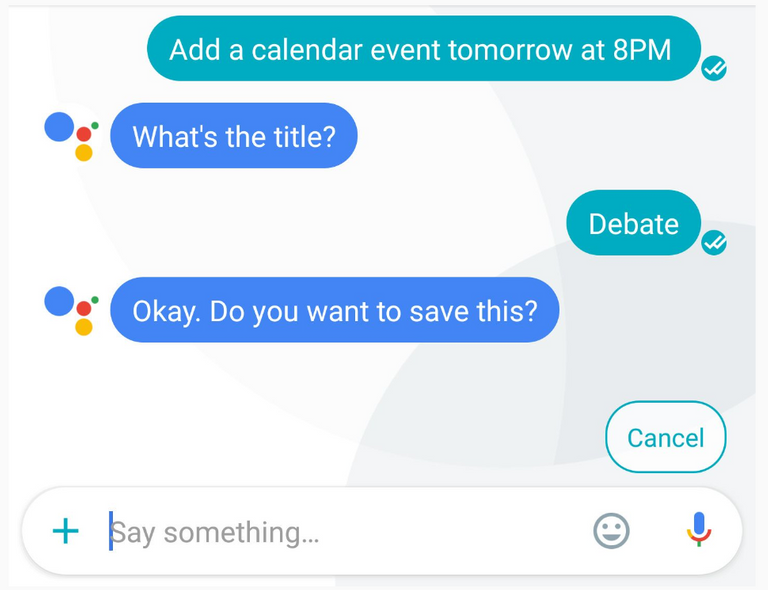
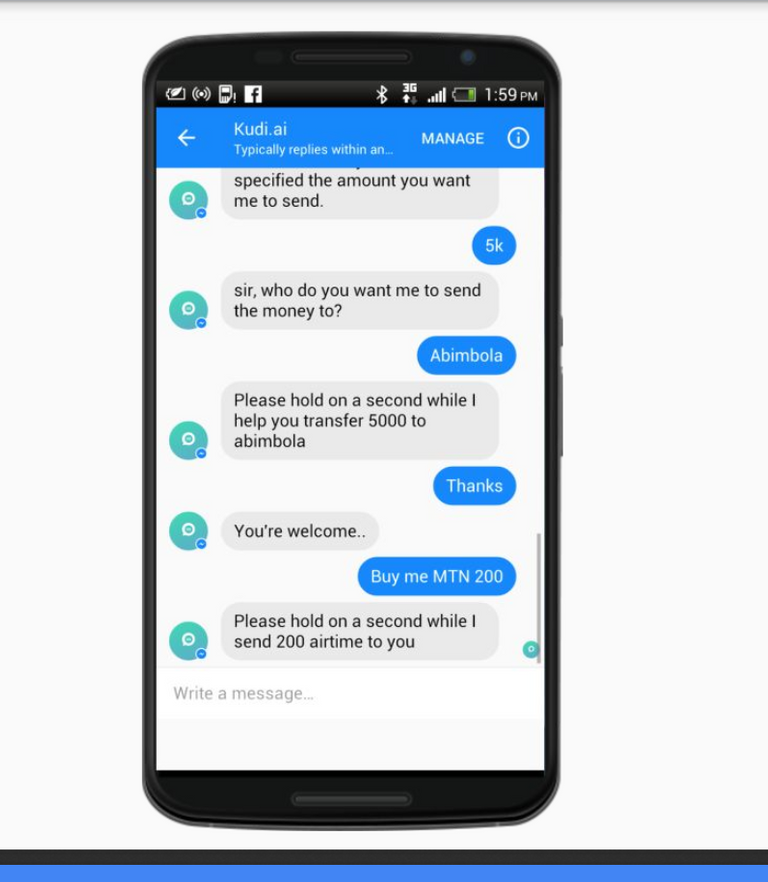
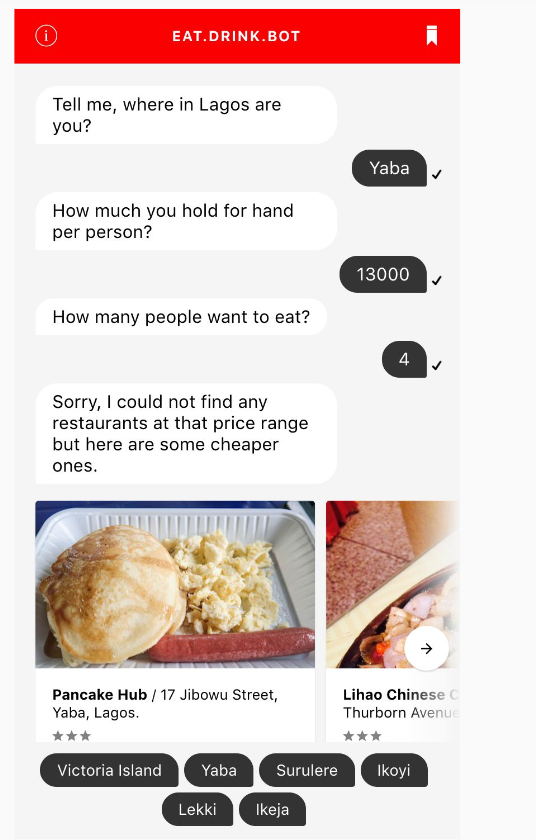
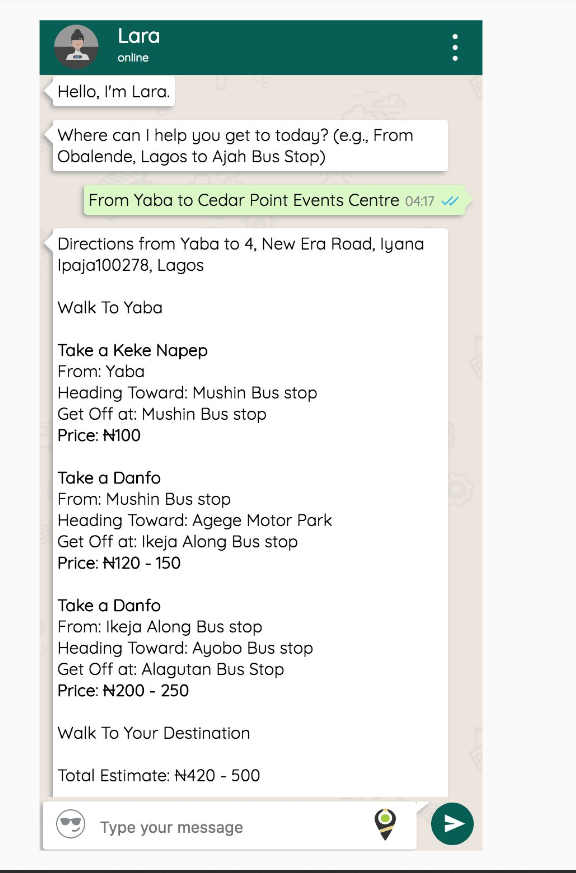
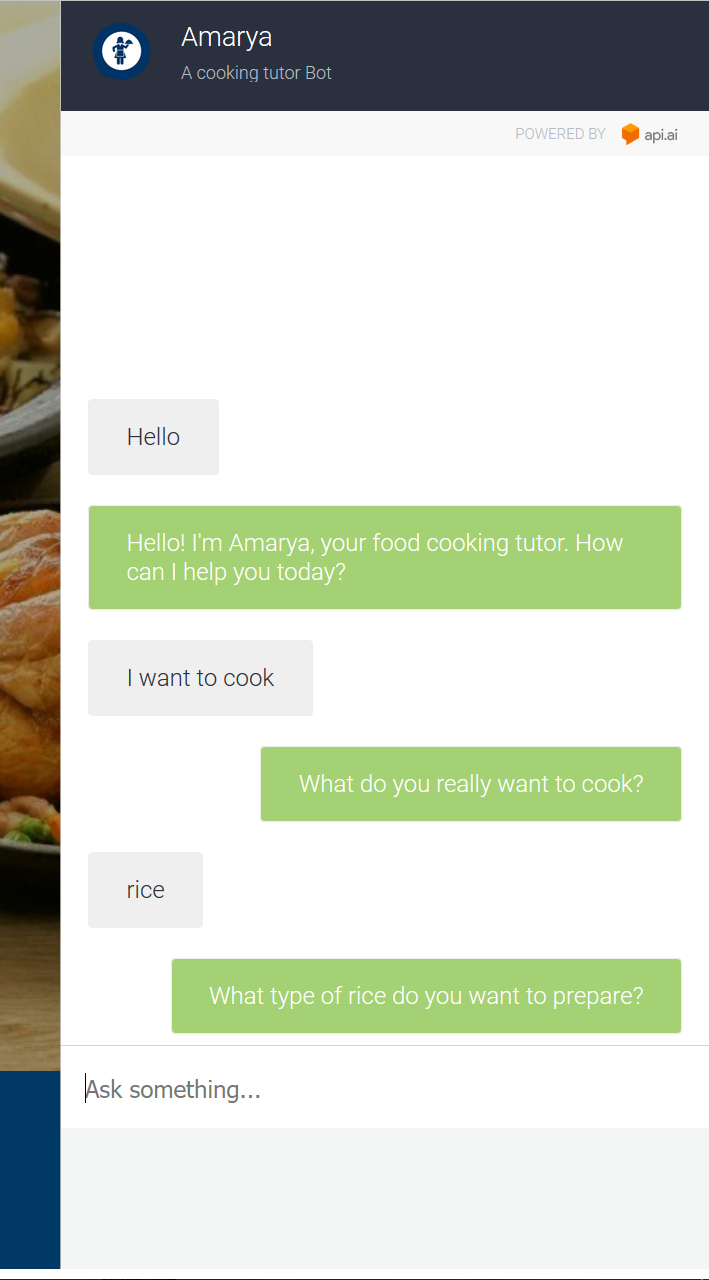
Technological advancements have made it easier to do that which was once near impossible to do. The ability to get information at the sanp of a finger is only offseted by the disadvantages of using an A.I.
While the growing use of A.I has made things far more easy, I personally belong to the "paranoid" school of thought that A.I'd could be our own misfortune.
Call me paranoid, but I prefer a better system of communication between humans be created, than offsetting and dumping all our works on A.I to make life "easier" (or rather make co operations more richer.
Just like the car replaced the horse, soon too, shall the A.I replace the man.
Good post! I can see good future in technology years from now. Apps will definitely evolve too ^^
wow...this is awesome...haha,i really wish to use technology like this